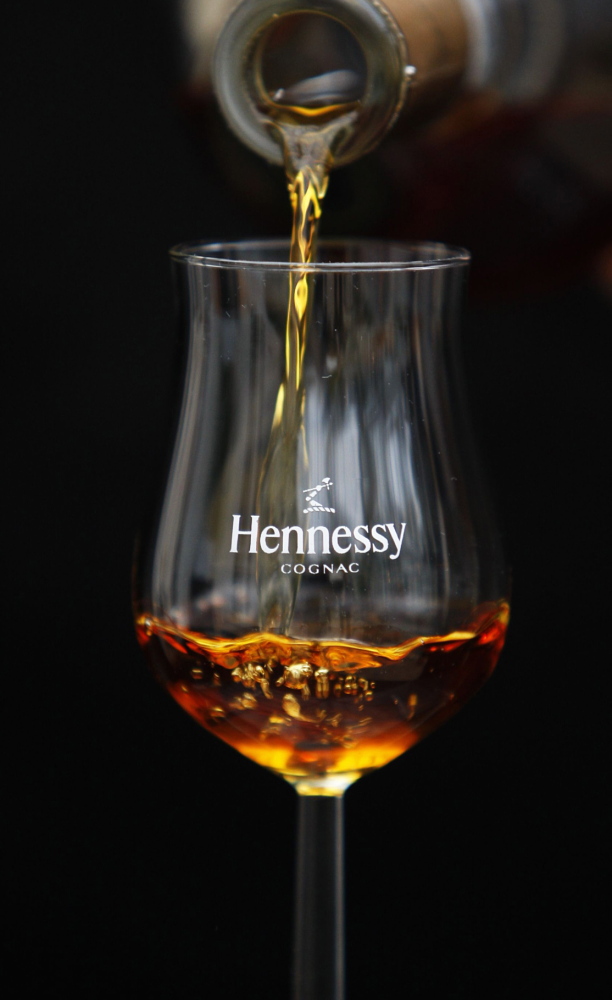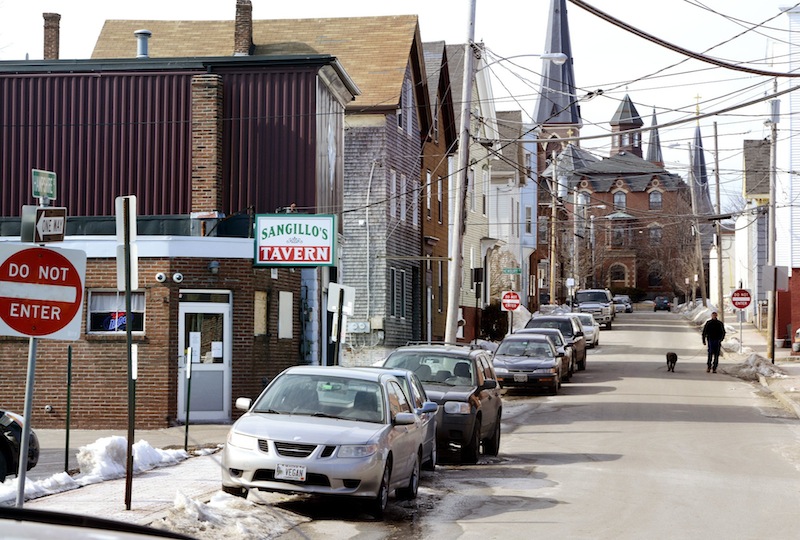Are cognac drinkers troublemakers?
That would seem to be the premise behind a Portland bar’s ban on two kinds of cognac – Hennessy and Rémy Martin – as the owners try to convince city officials that they are making the place safer.
In a letter to the police department, a lawyer for Sangillo’s Tavern said “the purchase of these liquors was related to detrimental conduct.”
Hennessy cognac is heavily marketed to young black drinkers, raising questions about whether the ban has racial overtones. Hennessy has been mentioned in more than a dozen rap and hip-hop songs, and was called “Black America’s favorite cognac maker” by Ebony magazine in 2012.
Rachel Talbot Ross, president of the Portland branch of the NAACP, said the cognac ban struck her as “odd” but she didn’t want to draw conclusions without knowing more details.
“I’d certainly like to look into this,” she said.
Portland police have recommended that Sangillo’s Tavern lose its liquor license, citing 23 calls to the location in less than a year, including one for a shooting in January that left a man paralyzed. The City Council will consider the recommendation Monday.
The tavern’s lawyer said the cognac ban is definitely not about excluding any particular group.
But banning Hennessy, for whatever reason, might make some people ask questions.
“It’s sort of similar to banning baggy pants or gang colors. There is certainly precedent for banning certain items to exclude certain groups,” said Keith Maddox, who researches stereotyping and prejudice at the Tufts University Social Cognition Lab, in Medford, Mass. “I had never heard about this product being banned to keep a certain group out, but it wouldn’t surprise me.”
Hennessy cognac is a product with a large African-American customer base and ties to rap and hip-hop culture. Snoop Lion (formerly Snoop Dogg), R. Kelly, Kendrick Lamar and Drake are among the artists who have mentioned it in lyrics. The rapper Nas is the latest celebrity spokesman for the brand. P. Diddy and Busta Rhymes have also mentioned cognac in their lyrics.
Hennessy first became a favorite with African-American drinkers when black soldiers in Europe were introduced to the cognac during World War II, said Jamilah Lemieux, an editor at Ebony.com who has written on the history of Hennessy.
Lemieux said that soon after World War II, Hennessy became the first liquor brand to advertise in Ebony and Jet magazines, helping to forge a brand loyalty among African-Americans that endures today.
In a letter to police dated March 6, Harry Center, the lawyer for Sangillo’s, said the owners have tried to address the department’s concerns by installing 16 security cameras, hiring “trained” doormen, barring people who cause trouble and stopping sales of the two cognacs.
Center said the ban is “absolutely not directed at any type or group of clientele.” Bar managers have seen that certain people who contribute to “disorderly” conduct at the bar are regular drinkers of the cognacs, he said, so the products were banned as a way to discourage those people from coming to the bar.
He said he did not know of any other instances in which Sangillo’s banned a certain liquor to discourage disorderly customers. But he said the bar’s staff does keep lists of people who are not allowed in and people who are not allowed to have hard liquor.
“It’s no different than if showing ‘Monday Night Football’ was causing disorderly patrons and they decided to stop showing that,” Center said. “The serving of these liquors, by management experience, resulted in certain behaviors.”
He couldn’t give specific examples of incidents in which patrons were involved after drinking Hennessy or Rémy Martin. Both are 40 percent alcohol, a typical alcohol content for hard liquors.
Police have released few details about the shooting, which happened outside Sangillo’s after closing time on Jan. 28. A 24-year-old man was paralyzed. No one has been charged and police are still investigating.
Assistant Police Chief Vern Malloch said Tuesday that police did not recommend the ban on cognacs to Sangillo’s. He said he had not heard of other Portland bars banning the drinks, and he’s not sure how effective the measure will be.
“It’s not something we endorse,” he said.
Ray Routhier can be contacted at 791-6454 or at:rrouthier@pressherald.com
Send questions/comments to the editors.





Comments are no longer available on this story